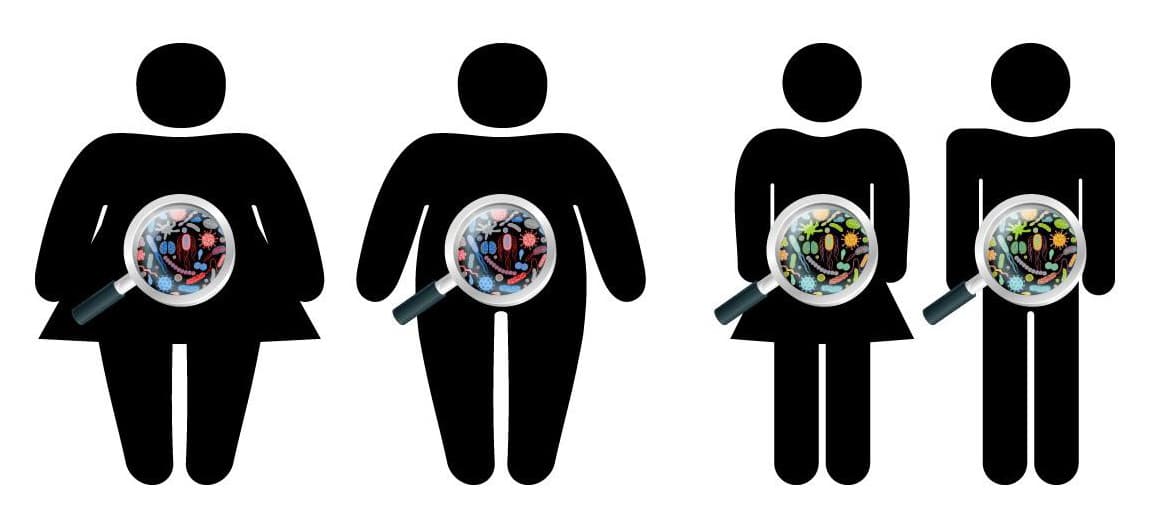Obesity is becoming an increasingly serious issue for humanity, affecting one in three people. It is linked to many dangerous diseases, such as type 2 diabetes, hypertension, and non-alcoholic fatty liver disease (NAFLD). In addition, obesity can lead to low self-esteem and mental health issues, especially among young people.
The causes of weight gain are complex but are primarily associated with modern lifestyles: high-calorie food consumption, large portions, physical inactivity, and excessive intake of sugar and artificial sweeteners.
How Are Gut Bacteria Related to Obesity?
Research shows that in obese individuals, gut microbiota is dominated by bacteria from the Firmicutes kingdom, while levels of bacteria from the Bacteroidetes kingdom are reduced. These differences in microbiota composition may contribute to more efficient energy extraction from food, leading to weight gain. A striking example is the case of a 32-year-old woman who, after contracting a Clostridium difficile infection, underwent a successful fecal transplant from her obese daughter and began gaining weight without any lifestyle changes.

The Role of Probiotics in Fighting Obesity
When addressing weight loss, it’s essential to not only limit calories but also change one’s diet. Increasing the intake of fruits and vegetables can help alter the composition of gut microbiota. However, this process may take time, which is why probiotics are becoming a popular supplement to accelerate these changes.
Probiotics can offer numerous positive effects on metabolism, including reducing inflammation and improving hormonal responses in the gut. They may also reduce appetite and increase levels of adiponectin, a hormone beneficial for overall health.
Research
Recent studies indicate that adding synbiotics to the diet of children with primary obesity leads to significant improvements. In one study, children who received synbiotics showed better weight loss and BMI (Body Mass Index) outcomes compared to a control group. The commercial product NBL Probiotic Gold, containing probiotics with prebiotics, was used.
According to results published in the journal Beneficial Microbes, obese children who followed a calorie-controlled diet with increased physical activity lost more weight when synbiotics were added to their diet.
It was also noted that synbiotics helped reduce oxidative stress markers. Professor Ener Çagri Dinleyici from Eskisehir Osmangazi University in Turkey emphasized: “To our knowledge, this is the first study showing the effect of synbiotics on oxidative stress in obese patients and an additional impact on weight loss.”
The Impact of Probiotics on Liver Health
Furthermore, studies have shown surprising benefits of probiotics for weight control and improved liver health. In a large clinical trial, participants with obesity and NAFLD who took (S. Thermophilus, B. longum, B. bifidum, L. acidophilus, L. rhamnosus) for 12 weeks demonstrated a significant reduction in BMI by 0.48 kg/m² and a decrease in intrahepatic fat from 16.3% to 14.1%. These results confirm that probiotics can provide real assistance in combating metabolic disorders.
These discoveries open new horizons in diet therapy and may become an essential component of obesity and metabolic disorder management programs.






